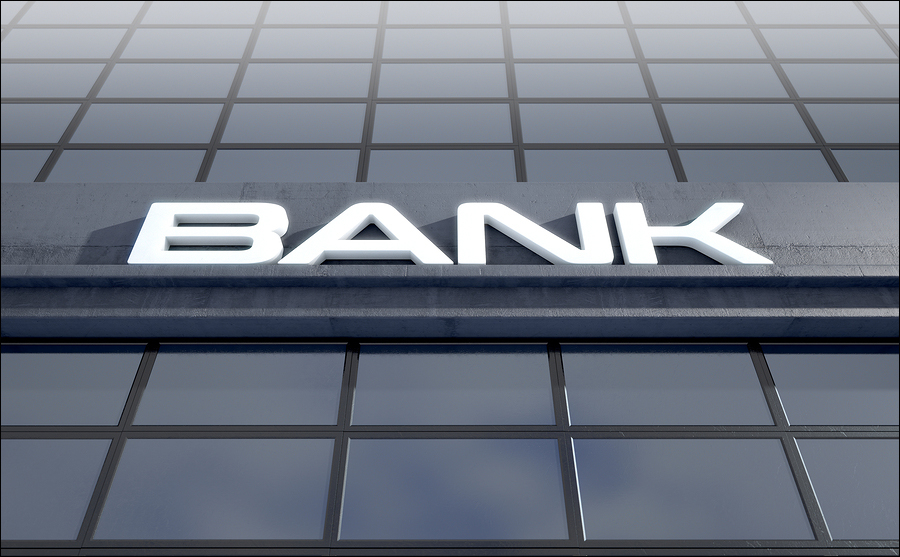Money is fungible. Services are not. Selecting the right bank (or credit union or any other similar financial institution) for your business needs can be critical to your company's future. It can be painful, expensive and unproductive to change banks, although it is sometimes necessary.
Doing it right the first time can be a godsend. Your bank is your financial “partner” and you need to make sure that the bank offers everything you need – and that you qualify for the services it offers. If you move all of your banking services to an institution only to find you don't get something critical that you need, making a change to another bank is quite time consuming.
 This should encompass both business AND personal needs. Just as you in your business want a greater share of your client’s wallet, so does the bank. The more you give the bank, in theory, the greater attention you will get. Collectively, your overall relationship is your currency. If you have some meaningful assets to employ to your advantage, do so. It can even be deposits from another entity with whom you have a relationship. For example, you might be a key volunteer at a local charity. They may have some great business benefits for a bank. Put it to good use. They need a bank, it may as well be your bank.
This should encompass both business AND personal needs. Just as you in your business want a greater share of your client’s wallet, so does the bank. The more you give the bank, in theory, the greater attention you will get. Collectively, your overall relationship is your currency. If you have some meaningful assets to employ to your advantage, do so. It can even be deposits from another entity with whom you have a relationship. For example, you might be a key volunteer at a local charity. They may have some great business benefits for a bank. Put it to good use. They need a bank, it may as well be your bank.
Services. What types of checking and savings accounts are required? Will you need a safe deposit box? Do you want investment advisory services? Lock box for company deposits? Payroll services? 401(k)? In lending, business lines of credit and loans? Car loans? Home or commercial mortgage? Do they offer specialized loans, such as those in SBA programs?
Deposits. Do you insist on driving to a branch to make deposits? Or do you use online banking, which can provide more geographic flexibility? Do you accept credit cards as a “merchant?”
Do you need the bank to process those charges? What about international capabilities, such as remittances in or out?
Merchant credit cards can be services or deposits as you will need to get these charges “deposited” in your bank account. For the most part, charges and fees for these services are not negotiable. The largest costs are the same for everyone with the same set of criteria. (However, if you swipe a physical card, you get the lowest rate; if you process by phone or computer, you will pay a higher rate due to the great risk of credit card fraud).
 After assessing your individual and business needs it's time to go shopping for a bank.
After assessing your individual and business needs it's time to go shopping for a bank.
Start with recommendations from your peers. Which bank do they use and why? Generally, business people like to boast about their business and banking relationships. (Then again, if they do not, then don’t extend them too much credit!) You can learn a lot about the potential banks from these peers. Other resources would include your accounting and/or law firm. They work with banks regularly on behalf of their clients. If they can understand your needs, they often can match them to prospective banks. And they don’t do it for altruistic needs. They get referrals back from the bank!
You have now settled on a possible bank. Set an appointment. But remember, you need to meet with the right person. Who is responsible for the small business market at the bank? By the way, each bank defines this market differently. Make sure you are in the right department. Is this department decentralized? Will the banker come to meet you at your place of business? Does he or she have sufficient authority to bind the bank to agreements? Do they have a track record showing performance? Is the bank committed to your size company? Find out early on if you are too small (or in some cases, too big) for their department. You may think that all banks offer all services homogeneously but that is not the case.
Does your banker know anything about our industry? Is he/she willing to learn about the industry? Are its commercial products (assumption is that most personal products are similar in nature from bank to bank) compatible with your needs?
It is imperative that you begin to build a relationship with your potential account manager. Has he or she been with the bank for a while? Hopefully they have an associate also assigned to you. If the manager is promoted, what happens to that relationship you developed? Similarly, what happens if they leave the bank?
The smaller the bank, the more likely the decision makers are geographically close to you. Typically they are more committed to smaller business clients. But they can be easily acquired by larger banks and lose some of their inherent strengths. Larger banks may offer more stability, but you may lose the geographic connection. Or they may be quicker to just withdraw from a specific market.
After graduating from the Wharton School at the University of Pennsylvania, Harvey Mackler enjoyed a 20-plus year career in commercial banking, exercising his “golden parachute” in 1996. He was executive vice president and COO of a commercial finance subsidiary in Manhattan and chairman of the Small Business Banking Unit of the American Banker’s Association. He has served on the board of the acclaimed George Street Playhouse in New Jersey and chair of the Easter Seal Society of New Jersey for two years, as well as a captain on his local emergency rescue squad. He acquired GWI Corp in February, 1997 and transformed it to focus on the supplier/distributor/end-user model, growing the company's sales by 500 percent. He is past chair of the SAAGNY Foundation, current Co-Chair of the PPAF EXPO and past Chair of the Supplier Committee of PPAI.